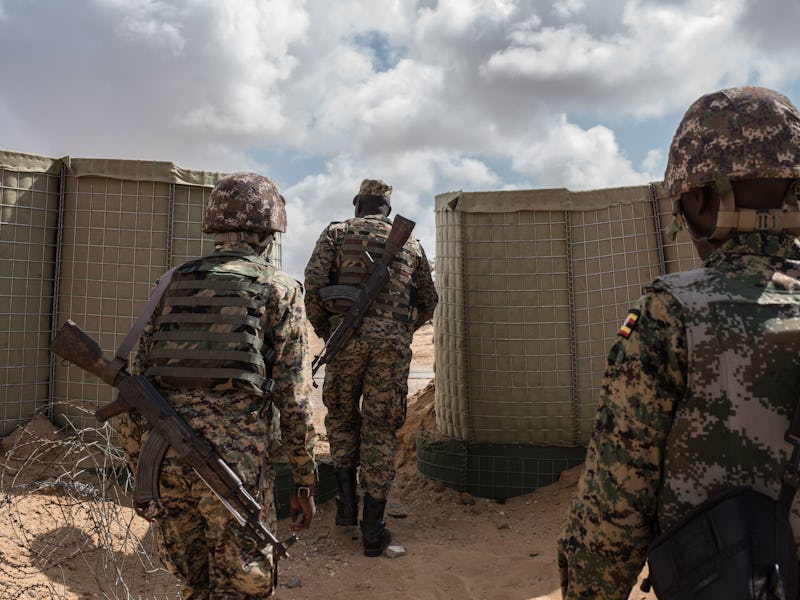Why U.S. SEALs Targeted a Terrorist Radio Station in Somalia
The operation against Al-Shabaab left one SEAL dead.

On Thursday, the Somalian terrorist group Al-Shabaab killed an American Navy SEAL during an intense firefight outside of Mogadishu, the capital of Somalia. Local reports on the ground suggest that the operation might have targeted the headquarters of Radio Andalus, an Al-Shabaab radio station that broadcasts jihadist propaganda across the region — and since the group is known to market itself on social and traditional media alike, it’s highly possible that’s what the SEALs were trying to shut down.
Officials from the Department of Defense confirmed the American service member was in Somalia as part of the ongoing “advise-and-assist” mission in the country, and an anonymous official told the New York Times that the fallen soldier was a SEAL. The U.S. has had special forces soldiers in Somalia for decades, but a DoD spokesperson said this was the first combat death of a service member since the early 1990s, a period of time made infamous by the [Battle of Mogadishu](https://en.wikipedia.org/wiki/Battleof_Mogadishu(1993)) and subsequent film Black Hawk Down.
Al-Shabaab is a growing force in the region, and has carried out massive attacks — including the Westgate shopping mall attack in Nigeria in 2013 and the laptop bomb attack in 2016. Like ISIS, the group uses a number of sophisticated communications strategies to recruit followers and spread propaganda across the Horn of Africa, which is where Radio Andalus comes in.
According to Daudoo, a Twitter account based in Mogadishu that focuses on the fight against Al-Shabaab, the firefight in Bariire, a small village about 50 miles west of Mogadishu was an attempt to raid the headquarters of Radio Andalus.
Radio Andalus has been broadcasting around Mogadishu for years. In 2012, the radio station went off the air after government forces captured the area it was operating in, but it resumed broadcasting soon after. The station is a double-edged sword: For local journalists and Mogadishu residents, it’s often the only way to get information on parts of the country controlled by Al-Shabaab, but it also keeps the population inundated with jihadist propaganda.
Al-Shabaab has also famously used social media to spread its message, and even live-tweeted the Westgate mall massacre in 2013. Twitter started cracking down on terrorist-affiliated accounts on its service, but stopping a radio station from broadcasting is much different than shutting down an organization’s webpages.
U.S. officials say the raid targeted a compound that was used to plan attacks — if the compound in Bariire was a headquarters for local Al-Shabaab commanders, it’s also highly probable that it was the new home of Radio Andalus as well. But as Daudoo notes, local sources say the station is still up and broadcasting.
Thus far, President Donald Trump has not issued a statement on the SEAL’s death, and did not include it in his weekly address delivered on Friday.